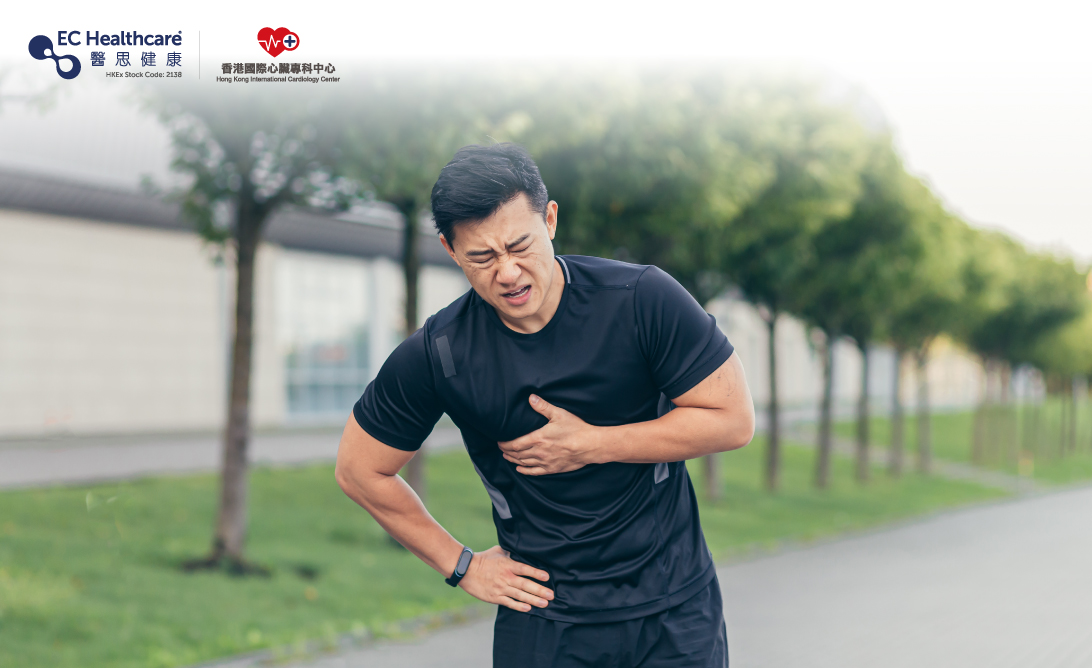Enlarged Heart: A Risk for Sudden Cardiac Death After Exercise?


In recent years, there have been several reports of sudden cardiac arrests occurring after activities like badminton or running. Rumors suggest a connection between these incidents and underlying heart conditions, such as cardiomegaly or hypertrophy. But what exactly is cardiomegaly or hypertrophy, and how does it increase the risk during exercise? Let's delve into the details.
What is Cardiomegaly?
The heart is a vital organ in our bodies, responsible for pumping blood to different parts through the contraction and relaxation of the cardiac muscle. Normally, the thickness of our cardiac muscle is around 10mm. When the thickness of the left ventricular wall exceeds 15mm, it is categorized as hypertrophy or thickened cardiac muscle.
The heart condition can be classified as congenital or acquired. Congenital factors include genetics, valve defects, myocardial protein disorders, and rare conditions like amyloidosis or Fabry's disease. Generally, congenital cardiomegaly or hypertrophy leads to smaller ventricular capacity, resulting in reduced blood volume and decreased pumping of blood.
On the other hand, acquired cardiomegaly is often associated with conditions such as hypertension and aortic valve stenosis, also known as obstructive cardiomegaly. In this case, patients experience difficulty in pumping blood out of the ventricles due to reduced ventricular capacity, leading to blood stagnation and sudden fainting episodes.
Symptoms of Cardiomegaly
Cardiomegaly is a common heart condition, with studies showing that about 1 in every 7 adult males and 1 in every 10 adult females are affected by hypertrophy. In the early stages, symptoms of cardiomegaly may be subtle and progress slowly, only manifesting during exercise and easily overlooked. If you experience the following symptoms during physical activity, it's important to take note:
.Unexplained shortness of breath
.Chest pain or angina
.Chest tightness
.Palpitations
.Unexplained dizziness, fainting, or brief loss of consciousness
Can Cardiomegaly Lead to Exercise-Related Sudden Death?
Patients with cardiac hypertrophy can still engage in physical activity; however, they should avoid high-intensity or excessively strenuous exercises. This is because cardiomegaly can impair the efficiency of blood pumping, leading to symptoms such as shortness of breath and wheezing.
Patients with cardiomegaly are more prone to experiencing arrhythmias, myocardial infarction, and heart failure, especially when the heart is suddenly burdened with increased demands during exercise. This heightened vulnerability can increase the risk of exercise-related cardiac events such as cardiac arrest, arrhythmias, and myocardial infarction, ultimately raising the chances of sudden death after physical activity.
How to Prevent Exercise-Related Sudden Death in Cardiac Hypertrophy?
If you have hypertrophy and wish to engage in physical activity, it is crucial to consult your doctor beforehand. They can help you choose appropriate types of exercise and guide you in starting with low-intensity workouts, gradually increasing the intensity and duration as your condition permits. During exercise, it's important to monitor your heart rate and breathing. If you feel any discomfort, it is essential to stop exercising immediately.
Therefore, it is crucial to confirm whether you have hypertrophy. If you experience related symptoms or have a family history of such conditions, it is advisable to undergo a cardiac examination as early as possible. The Hong Kong International Cardiology Center offers 3 different cardiac check-up packages, ranging from basic to comprehensive, to help you maintain a healthy heart.
Disclaimer: This article is prepared by an independent third party and is not sponsored. The content provided is solely for informational purposes and should not be considered a substitute for professional medical advice, diagnosis, or treatment. It does not represent any specific viewpoint. In the event of any discomfort or health issues, it is advised to seek medical attention promptly.
Related Brands










